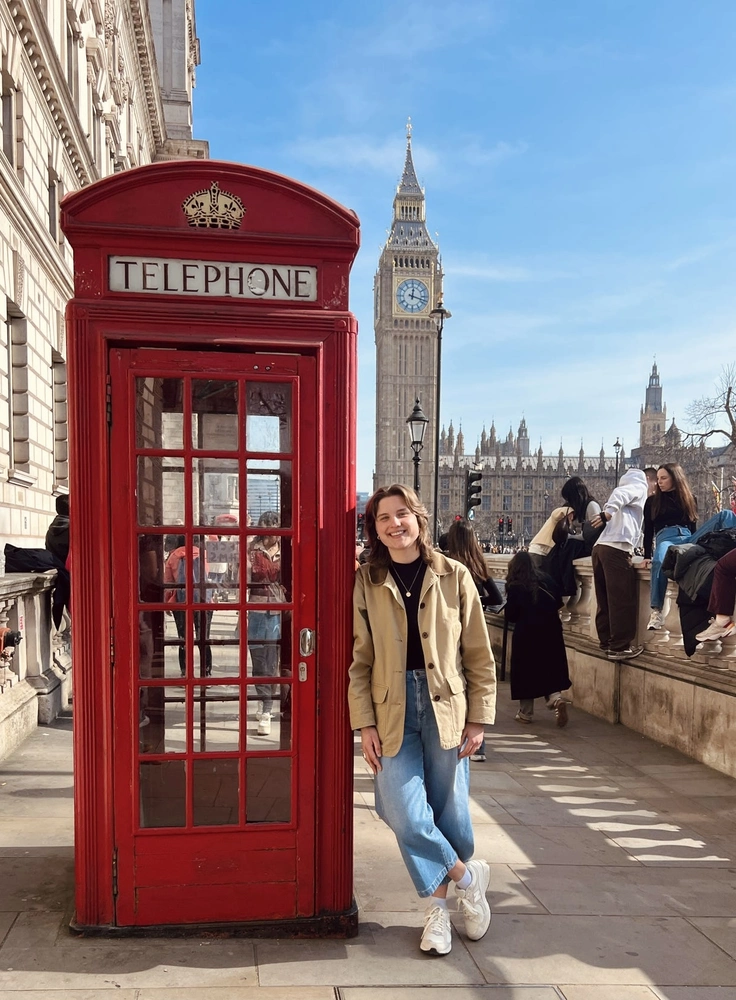
I never imagined I’d study abroad. Before this past spring, I had never even left North America, and my worldview was shaped by a distinctly American perspective. That changed when I transferred to the University of Illinois Urbana-Champaign. My mom studied abroad in Scotland while she was in college and encouraged me to seek out studying abroad myself. She often spoke of how formative an experience it was for her, which peaked my own interest once I transferred here. At the University of Illinois Urbana-Champaign, I met friends planning to study abroad in the United Kingdom, and I decided to join them for a semester at the University of York. I didn’t fully understand what my mom meant by a “formative experience” until I lived it myself.

Arriving in London after a sleepless overnight flight felt surreal. Suddenly, I was navigating a country where people said “cheers” instead of “thanks” and where pub culture and politeness defined daily life. Over the next six months, I explored the United Kingdom. I visited London, Leeds, Manchester, Liverpool, many different parts of Yorkshire, Scotland, and Wales—along with traveling throughout Europe, visiting Ireland, France, Italy, Sweden, and Denmark. Each trip taught me how to travel light, adapt quickly, and find comfort in discomfort.
Academically, the adjustment was just as significant. British universities operate with far more independence—grades often rest on one final exam or paper. Additionally, British students specialize much earlier, and initially I was intimidated by my peers’ ability to speak far more articulately on subjects I had surface-level knowledge on. However, with time, I came to understand the British schooling system, allowing myself to become a more self-sufficient student by managing my own study time and pushing myself beyond the familiar structure of American coursework. By the end of the semester, I felt not only more capable, but genuinely proud of my ability to succeed in a completely different learning environment.
Living with international students was one of the most rewarding parts of my time abroad. Our shared flat became a space of cultural exchange. Over dinners we compared lectures, languages, and experiences. I learned how varied people’s perspectives can be depending on where they’re from, and how similar our goals often are despite those differences. As an English minor, one of my passions is storytelling and understanding how everyone’s unique backgrounds shape who they are, which can better help me to become more empathetic and understand myself. These daily interactions reshaped how I saw my own culture, showing me both its strengths and its blind spots.

Outside the classroom, life moved at a slower, more intentional pace. People took time for coffee breaks, walks, joining in impromptu singalongs of the best of British music (studying in the North of England introduced me to the vibrant music scene created in the United Kingdom), and long conversations in pubs. That rhythm was refreshing; it encouraged reflection and balance, two things I rarely found in the fast-paced, efficiency-driven culture back home. Traveling through Europe reinforced this appreciation for slowing down. Whether it was watching Parisians linger over coffee, Italians enjoying dinner late into the night, or Swedes pausing for fika reminded me that connection and presence are universal values.
Studying abroad also opened my eyes to global differences in sustainability and public health. I relied on public transport instead of a car, ate fresh local food, and noticed that my gluten sensitivity nearly disappeared while abroad. Yet, I also saw that no country is perfect—political tension and healthcare challenges exist everywhere. These realizations helped me appreciate the complexity of global systems and the importance of balance rather than comparison.

Ultimately, studying abroad gave me confidence, independence, and perspective into who I am and what I want in both my professional and personal life. As a student preparing for veterinary school, I had worried that spending a semester abroad might delay my progress. Instead, it enhanced it. I came back to the United States more adaptable, resilient, and open-minded. I discovered that success isn’t just about academic achievement, it’s about learning to navigate the unfamiliar with curiosity, grace, and the ability to become empathetic to different cultures and ways of life.
I encourage every student to study abroad if they can. It doesn’t have to be extravagant—my friends and I traveled on budget airlines, stayed in hostels, and carried our lives in backpacks—but the lessons we brought home were invaluable. Studying abroad wasn’t just a trip; it was a transformation. It taught me how to live, learn, and connect in ways I never could have inside a classroom.